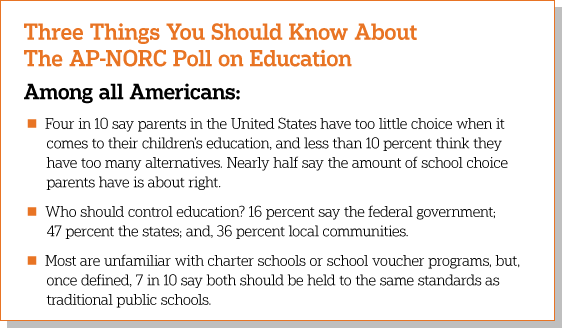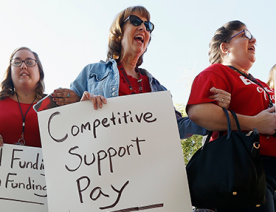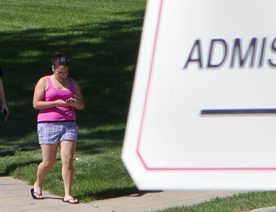
Although many Americans profess to want more school choice, there is very little support for several proposals to provide options in elementary and secondary education.
In the latest poll conducted by The Associated Press-NORC Center for Public Affairs Research, about 4 in 10 think there is too little school choice in their state or their own community. However, more Americans want to maintain the status quo that gives preference to the children living near a particular school than support proposals to provide more choice like using various criteria for admission or the use of lotteries to determine school admissions.
Fewer than half of all Americans want to increase the number of charter schools or school voucher programs that provide government funding for students to attend private or religious schools instead of their public school. However, among those who say parents have too little choice in where their children are educated in their community, about 6 in 10 would like to see more charter schools and school voucher programs.
Overall, 70 percent of Americans think their local schools educate minority children just as well as white children. Eighty-one percent of whites with school-age children say white children receive just about the same quality of education as African-American, Hispanic, and other minority children. Non-white parents are not quite as favorable: 58 percent say minority children’s education is equal to white children, but 39 percent consider it inferior.
The nationwide poll was conducted April 20-23, 2017, using the AmeriSpeak Panel, the probability-based panel of NORC at the University of Chicago. Online and telephone interviews using landlines and cell phones were conducted with 1,036 adults. The margin of sampling error is plus or minus 4 percentage points.
After the poll was concluded, President Donald Trump ordered a review of federal education policies in an effort to strengthen local control of public schools. While most Americans disapprove of Trump’s handling of education, they agree that state and local government should play the largest role in public school education. Nearly half, 47 percent, say individual states should control their public schools, and 36 percent think local communities should determine how public schools are run. Only 16 percent say the federal government should have the largest role in running public schools.




